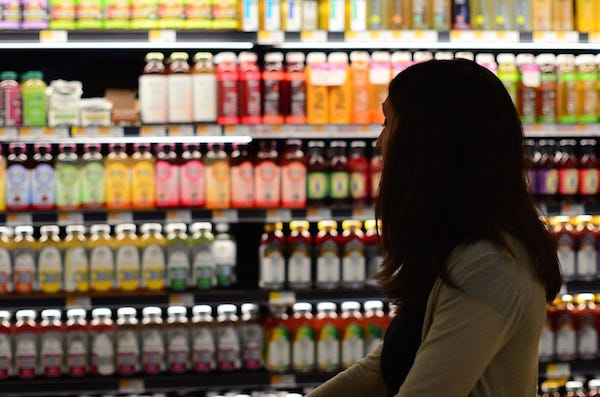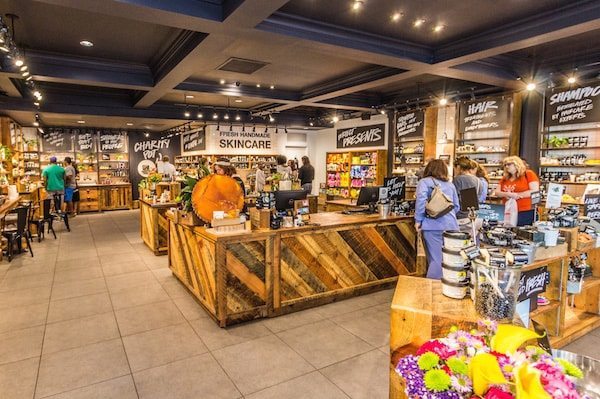Food and farm entrepreneurs often assume that only big corporations have the capacity to sell products abroad. But in reality, that’s not true at all. Small food brands and farms also have the potential to expand their business overseas—and many make good money doing it.
Obviously, plenty of food and ag enterprises are not good candidates for international commerce, whether they lack the capacity, the time, the right products, or even the desire. And, it should be noted, there is absolutely nothing wrong with remaining domestic, regional, or even hyperlocal—there are plenty of avenues for growth within those realms.
However, in more cases than entrepreneurs likely realize, selling internationally can be a smart strategy. For instance, maybe the market for a certain agricultural product is saturated stateside, but there is a shortage of that item in other nations. Or perhaps a small food brand’s offering is much higher quality than what’s available in another country, meaning it would fly off foreign shelves. Or maybe a farmer just has an especially bountiful harvest and needs to find more buyers.
With so many opportunities, international expansion is at least worth considering for food and farm businesses with an eye toward growth. OK, but where do they even begin?
Fortunately, there are plenty of resources to help navigate this, and the local small business development center (SBDC) is a great place to start. SBDCs offer education, consulting, references, and tools to help businesses launch and scale, and every U.S. state and territory has at least one center. In fact, FFI is part of the Wisconsin SBDC.
Most of these organizations have an international trade consultant to guide entrepreneurs contemplating selling overseas. At Wisconsin’s SBDC, that’s Chris Wojtowicz, who joined Sarah for the latest Edible-Alpha® podcast. He discusses a variety of global opportunities available to small food and ag businesses and walks through the big questions they must answer when weighing globalization.
First and foremost, does the company have the capacity to expand? If it does, is there sufficient demand for its products outside the U.S.? If so, where? Can the business afford the added costs that come with selling abroad? What does that foreign government require for labeling and packaging? What are the import taxes like? Will the company sell direct to consumer or through retail? How will distribution work? Which party will arrange freight?
This is just a small sampling of the considerations—which is why it’s awesome that entrepreneurs don’t have to go it alone. Beyond SBDCs, there is an abundance of local, state, federal and international resources designed to help them figure this stuff out, strategize, and execute a winning global strategy. But again, starting with the local SBDC is just good business.
As the Wisconsin Small Business Development Center’s international trade consultant, Chris Wojtowicz helps food and farm entrepreneurs explore foreign market opportunities and devise global business strategies. Although many clients start out scared by the idea of expanding overseas, with the right guidance, tools, and connections, they frequently find success. Catch this info-packed conversation to learn more about growing a small food or farm business beyond the U.S. and whether it could be a smart move for your enterprise.
Save the Date!
Mark your calendar for our upcoming event: Investing in the Future of Food, on September 21, 2022! At this event, opportunities to connect with food-focused entrepreneurs will be the highlight, directly through exhibitions and sampling, plus indirectly through discussion and presentations. This is a hybrid event, you may join virtually or in person in Madison, WI at the Pyle Center.
And now, our roundup of the best food and beverage finance news, events and resources from around the web…

Business Model Insights
- How the Cooperative Food Movement Is Evolving (Civil Eats)
- Learning how to run a successful food co-op takes time, patience, a committed team, and support from people with cooperative experience.
- De-Platforming Your Brand for Exponential Growth (The Food Institute)
- Calculating ROI for Automation Projects (Food Manufacturing)

Raising Capital
- This financial whiz’s advice may save your CPG company from going under (Food & Beverage Insider)
- Capital is limited but still available—for now—so companies should act quickly to ensure they have necessary funding.
- ProducePay & ALLCOT announce a carbon offset program for produce growers (AgFunder News)
- Investors zero in on recession-resistant foods, strong track records as economy resets (FoodNavigator-USA)

CPG/National Brands
- Product developers tackle natural flavors and colors (Food & Beverage Insider)
- New plant-based ingredients offer vibrant hues and rich tastes with a coveted health halo.
- A Guide to Finding the Right Sustainable Packaging for Your Brand (Food Industry Executive)
- Analysis: 2022’s Top Upcycled Food Innovations (The Food Institute)
Market Trends
- Inflation might have a silver lining for natural foods (New Hope Network)
- Survey shows consumers are cutting back on eating out and entertainment but still buying natural and organic food and beverages.
- Most consumers don’t understand what ‘carbon-neutral’ means: study (Food Dive)
- Analysis: How ‘Heatflation’ is Heating up Food Prices (The Food Institute)

Farming and AgTech
- As the Ukraine Invasion Disrupts the Sunflower Oil Supply Chain, Small US Producers Step Up (Civil Eats)
- Demand for oilseeds is off the charts, sending companies scrambling to secure supply and farmers trying to plan for an uncertain future.
- What Are the Largest Organic Produce Growers in America Thinking About Regenerative Agriculture? (Regenerative Food Systems Investment News)
- How Climate Change Is Affecting Soil Microbiomes (Modern Farmer)

Deals/M&A
- Blue River Organic Seed acquired by Albert Lea Seed House (Successful Farming)
- By acquiring the organic corn, silage, soybean, alfalfa, forages, and sorghum seed company, Albert Lea Seed becomes the largest organic field seed supplier and producer.
- Nufarm leads $70m Series C for crop protection startup Enko (AgFunder News)
- Blockchain startup ucrop.it raises $3.1m pre-series A to help farmers prove sustainable practices (AgFunder News)

Industry Events
Virtual events:
- Inside Organic Summit: The Possibilities of Organic: 8/23
- Aptean Food and Beverage Symposium: 9/13
- WWBIC/FaB Wisconsin Training Session: Specialty Foods: Get Your Product on a Shelf: 9/19
- Edible-Alpha® Immersion Training: Managing Uncertainty: Scenario Planning: 9/19–9/29
- WWBIC/FaB Wisconsin Training Session: Food Halls and Markets: 9/26
- The Land Connection: Grow Your Farm Business: Launch Your Cottage Food Or Value-Added Enterprise: 10/6–11/17
- FFI October Quarterly Trends Talk: 10/10
- Edible-Alpha® Immersion Training: Farm Financial Management Bootcamp: 11/15
- Wisconsin Women’s Business Initiative Corporation Annual Convention Training Session: Manufacturing Resiliency: 12/3
In-person events:
- Rodale Institute Midwest Organic Center Field Day: 8/17 in Marion, IA
- Marbleseed Field Day: Gitigaaning Farm and Manoomin Tour: 8/20 in Cloquet, MN
- National Pizza & Pasta Show: 8/23–8/25 in Rosemont, IL
- Marbleseed Field Day: First Generation Farm Start-Up: 8/27 in Alexandria, MN
- Rodale Institute California Organic Center Field Day: 8/30 in Ventura, CA
- Farm Progress Show: 8/30–9/1 in Boone, IA
- Soil Health Academy School: Increased Profits Through Stacked Enterprises & Direct Marketing: 8/30–9/1 in Bismarck, ND
- Plant Based World Expo: 9/8–9/9 in New York, NY
- Food Automation and Manufacturing Symposium and Expo: 9/11–9/14 in Miami, FL
- Americas Food & Beverage Show: 9/12–9/13 in Miami, FL
- Midwest Mechanical Weed Control Field Day: 9/14 in Benton Harbor, MI
- Marbleseed Field Day: Urban Growers Collective Farm Tours: 9/17 in Chicago, IL
- International Baking Industry Exposition: 9/17–9/21 in Las Vegas, NV
- Soil Health Academy School: Transformational Dairying: 9/26–9/28 in Kinzers, PA
- Natural Products Expo East: 9/28–10/1 in Philadelphia, PA
- World Dairy Expo: 10/2–10/7 in Madison, WI
- Regenerative Food Systems Investment Forum: 10/12–10/13




